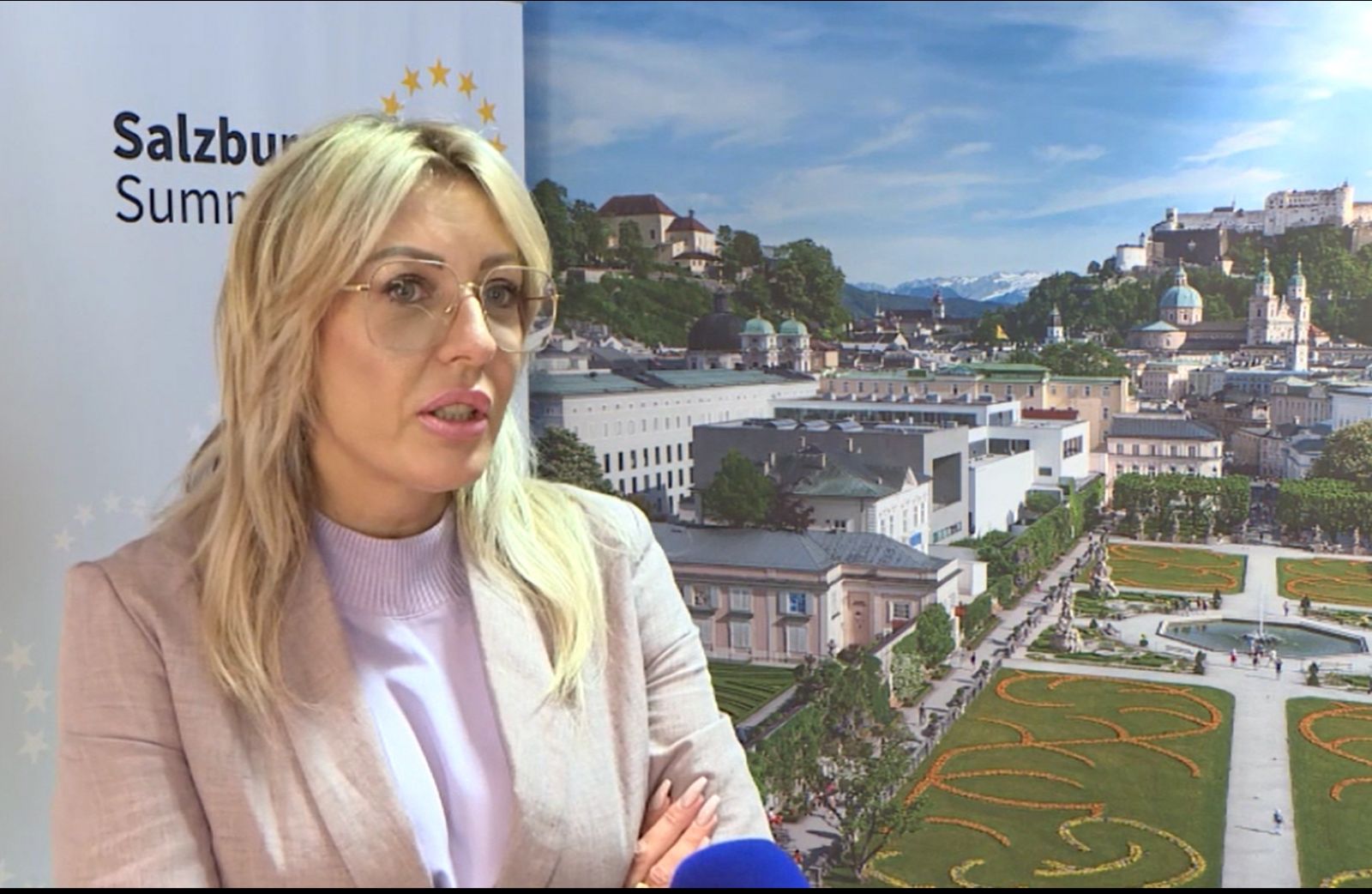
Serbia’s EU membership is supported by 57% of Serbian citizens, which has been the best result in the past five years, as concluded in the public opinion poll on the European orientation of Serbian citizens conducted by the Ministry of European Integration.
The results of the survey conducted in late July and early August show that, if there were a referendum, 57% of citizens would vote for Serbia’s membership in the EU, which is 8% higher than in 2020. According to Minister Jadranka Joksimović, this shows that Serbian society is still focused on the future and good reforms.
On the other hand, 30% of citizens would vote against membership, while a reduced percentage would remain undecided (12%).
Joksimović has told Tanjug that the score of 57% clearly demonstrates citizens’ rational attitude towards the EU, which also goes in favour of the Government’s EU accession policy and further – of the reforms carried out on that path.
“This attitude is an encouraging indicator that the majority of the public has accepted and understood all activities of the Serbian President, Prime Minister, of the Ministry, and all those who immediately started implementing the new methodology, which should give new impetus for the entire process, a new opportunity and space for already visible and positive reform results to be valorised”, said the Minister.
The majority of the citizens (83%) says that the reforms should be conducted for Serbia’s sake, to create a better Serbia, a not because they are a condition for membership.
According to Joksimović, this fact is even more important as it means that the public has a very realistic view that Serbia must change primarily for its own sake and for the benefit of its citizens and not for the sake of joining the EU.
The Minister has noted that it is important that the citizens acknowledge the reality in reviewing all the elements of the enlargement policy, both positive and the ones that can be influenced through dedicated work, as well as a broader political context – the crisis caused by the current pandemic, transition to the new negotiation methodology, the initiated debate in the EU about its own future, and the migration policy. She has added that the Government’s approach is completely aligned with the messages of European partners – that it is important for citizens’ expectations to match the reality, with a clear European perspective, and to be focused on the benefits they can have even prior to EU membership.
As regards the visibility of EU-funded projects, 50% of citizens know about at least one such project, predominantly in the area of environmental protection (21%), agriculture and healthcare (11%), education, science and innovation (10%), and public administration reform (7%).
Citizens see the European Union as the largest donor of international development assistance to Serbia since 2000.
As much as 41% of the respondents say that they know the EU has been the largest donor in the past 20 years. In addition, 34% of them believe it to be Chine, 11% Russia, while 5% of citizens believe that the largest donors are Norway and Japan.
“Every high-level visit from the EU, such as today’s visit of EC President Ursula von der Leyen to Serbia, contributes to greater visibility of development assistance, numerous projects that improve the lives of our citizens, such as the one we will initiate tomorrow in her presence and the presence of the President, regarding the works on the renovation and modernisation of Niš–Brestovac railway line. The value of those works is around EUR 60 million, of which 85% is donated by the EU, and 15% is covered from the budget of the Republic of Serbia”, stressed the Minister.
Almost a half of the respondents (48%) believes that EU membership would be a good thing, 27% is neutral, while 23% of the respondents see EU membership as a bad thing.
For one fifth of citizens, the EU represents more employment opportunities, 16% of them see it as a possibility to travel wherever they want within the EU, while 14% believe it to be the path towards a better future for young people.
A fourth of the respondents believes that the negotiations will bring a better life and new jobs, 19% believes that there will be more administrative obligations, 18% says that it will bring a better image to Serbia, 17% that the country will have greater access to much larger European funds, 12% thinks it will bring greater security, while only 8% of the respondents believes the membership will not bring anything good.
With regard to the reforms that have the most positive effect on everyday life, 62% of the respondents say that it is the reforms in the healthcare system, 60% in the area of environmental protection, 54% in agriculture, 51% in the area of consumer protection, 50% in the fight against corruption, 49% in public administration, and 48% in the area of human rights. A total of 36% of citizens believe that reforms have the most positive effect on the judiciary.
As much as 47% of them believe that Serbia would benefit from EU membership, 37% sees personal gains, while the same percentage of the respondents say there would be no benefits.
Source: Tanjug





